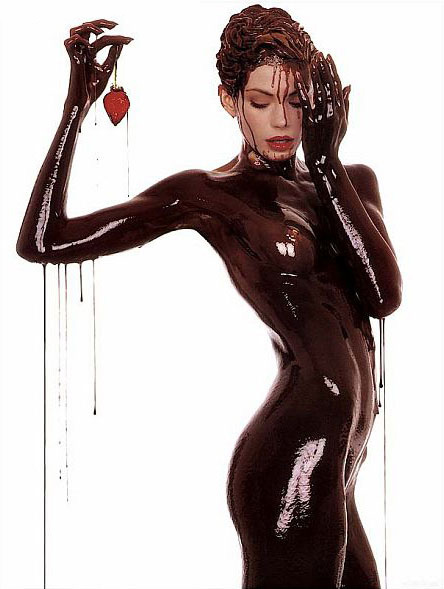|
Chocolate and
Health Benefits
Part of the pleasure of eating chocolate
is due to the fact that its melting point is slightly below
human body temperature therefore it melts in the mouth.
Which in turn releases chemicals in the brain closely linked
to the association with the feeling of love which again makes us
feel good.
In the fifteenth century chocolate was prescribed as a
medicine to boost the weakened body, and by the late
sixteenth century Parisians were using chocolate to treat an
astonishing range of maladies, including indigestion,
nervous conditions and venereal disease! The use of
chocolate for medicinal purposes stretches back to the
fourth century, when it was used as a wound dressing.
Allegedly Emperor Montezuma always drank a full goblet of
chocolate prior to entering his harem, triggering the myth
that chocolate is an aphrodisiac. The 17th century diarist,
Samuel Pepys, was a firm believer in the energising
properties of chocolate, and took it to relieve hangovers,
while Napoleon carried it with him in battle, eating it when
he needed an energy boost. Both Fry’s of Bristol and Terry’s
of York were founded by apothecaries.
The 20th and 21st centuries have seen continued debate about
the well-being and health benefits of chocolate, including:-
Eating chocolate can help you live longer
●
It contains powerful antioxidant phenols, which can lower
the risk of heart disease.
●
Eating chocolate can help lower blood pressure.
●
It contains flavonols, which help prevent oxidation of the
blood cells
●
The cocoa butter used to make it is broken down by the
liver and behaves in the body like a mono-unsaturated fat
(such as olive oil)
Chocolate has aphrodisiac properties - the Aztecs forbade
women to eat it for this very reason.
This legend still persists today, with ongoing speculation
that chocolate reproduces the feelings of being in love,
possibly through the presence of the stimulant PEA (phenyl
ethylamine),
which boosts energy levels and increases serotonin in the
brain, triggering sensations of pleasure.
 The more widely acknowledged belief is that chocolate makes
people feel good because of the sensual pleasure it delivers
- which explains much more succinctly our enduring love for
this wonderful substance. The more widely acknowledged belief is that chocolate makes
people feel good because of the sensual pleasure it delivers
- which explains much more succinctly our enduring love for
this wonderful substance.
Chocolate stirs up the emotions like no other food. Since
it’s discovery, we have used it to express our feelings,
soothe our bodies and minds and celebrate a wide array of
social occasions.
Chocolate is a calorie-rich food with a high fat content, so
daily intake of chocolate also requires reducing caloric
intake of other foods. Mars, Incorporated, a Virginia-based
candy company, spends millions of dollars each year on
flavonol research. The company is talking with
pharmaceutical companies to license drugs based on
synthesized cocoa flavonol molecules. According to
Mars-funded researchers at Harvard, the University of
California, and European universities, cocoa-based
prescription drugs could potentially help treat diabetes,
dementia and other diseases.
Coughing
Research indicates that chocolate may be effective at
preventing persistent coughing. The ingredient theobromine
was found to be almost one third more effective than
codeine, the leading cough medicine.[22] The chocolate also
appears to soothe and moisten the throat.
Acne
There is a popular belief that the consumption of chocolate
can cause acne. Pure chocolate contains anti-oxidants which
aid better skin complexion. The University of Pennsylvania
and the US Naval Academy conducted experiments that fed
subjects chocolate or a bar with similar amounts of
macronutrients (fat, sugar etc.) and found that consumption
of chocolate, frequent or not, had no effect on the
developing of acne. Chocolate bars with milk content may
contribute to acne. It is not the chocolate itself that
causes acne, but rather the milk with which the chocolate is
mixed.
Toxicity in animals
In sufficient amounts, the theobromine found in chocolate is
toxic to animals such as horses, dogs, parrots, small
rodents, and cats (kittens especially) because they are
unable to metabolise the chemical effectively. If they are
fed chocolate, the theobromine will remain in their
bloodstream for up to 20 hours, and these animals may
experience epileptic seizures, heart attacks, internal
bleeding, and eventually death. Medical treatment involves
inducing vomiting within two hours of ingestion, or
contacting a veterinarian.
«
Go Back |